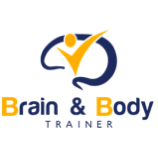FIVE STEPS FOR HEALTHIER & HAPPIER LIFESTYLE
You probably are aware that making healthy lifestyle choices would benefit your wellbeing & happiness in the long term.
You’ve tried it many times before. You feel motivated to eat better, exercise more, spend less time on your phone. Maybe you tried to drink less coffee, quit smoking or add other positive habits.
Firstly, understand that lifestyle change, also known as behaviour change, is very complex, and it requires more work than you want or expect.
Secondly, there is no quick fix. The theory that building a new habit takes on average 66 days is somehow flawed. Building good habits requires continuous work.
Thirdly, it requires a person to disrupt a current habit while simultaneously encouraging a new, often unfamiliar set of steps. In a nutshell, you are going to learn and unlearn at the same time.
I’ve put together five steps that can help you on a journey for a healthier and happier lifestyle.
1 – KNOW YOURSELF
Sadly, most people go through life without knowing what they want from it. Human Behavioural Specialist Dr John Demartini has put together a set of questions that can help you identify what truly matters to you – your values. Watch a short video at the bottom of this page and learn how to determine your own values. I found this very useful for people who want to change but don’t know where to start. Once you understand your values, it’s easier to link them to your daily actions and decisions and act on it.
Find out whether what you do every day is related to your values, and whether being healthier or fitter could support your most important values.
2 – SET GOALS
Specific, small and realistic goals help you to monitor your progress, and give you a sense of achievement and moving the right directions. I don’t mean only bodyweight or waistline. But things like increasing daily step count by 1000 every couple of weeks, reducing coffee to one a day or replacing afternoon chocolate bar with blueberries. From my experience, the people who took an active approach with goals were far more likely to be successful and happier during the process.
Schedule what and when you are going to implement in your diary, for example, long walk after 2-3hours of sitting, or drink a large glass of water right after waking up.
3 – START SMALL
By starting with small steps, you’ll feel successful knowing you met your goal at the end of each week. Connection of a brain and body is undeniable, and often when you start an exercise routine, you sleep better, crave less junk food and automatically feel better. However, if you struggle, pick one habit at the time and focus only on that before anything else.
4 – BUDDY-UP
Start paying attention to the habits of your family members and closest friends. Are they helping you on this lifestyle change process or pulling you down? Don’t get upset with them; they do the best they can. Describe to them what you are trying to achieve. Maybe after seeing you not ordering desserts, or drinking more water, they may start doing the same. If for any reasons they don’t want to support you, that’s fine, approach another friend. If they start ridiculing you for your efforts to better yourself, maybe you should reconsider how much of a friend they actually are.
5 – ASK FOR HELP
Our habits, such as the relationship with food or physical activity, are picked up in childhood from parents or peers. They are deeply embedded in the subconscious level of mind and often needs amounts of work and repetitions to be established. There are several ways you can go about change. One way is to hire a behavioural therapist; they are trained to understand the connection between mind and body as well as factors promoting behaviour change.
Another way is to try to figure out on your own, but you have to be honest with yourself. If you have been trying to figure out on your own in past years, but only achieved temporary satisfaction with the progress. You may want to break the vicious cycle and try something new.
I work with people who require therapeutic support, as well as people who have done some psychotherapy work and require a different approach than just training ‘beast mode’ all the time. Every day I learn how to comprehend the challenges and frustrations people may face when keep slipping off their diets or training programmes.
Whether you work with a therapist or not, your Brain & Body always benefit from a consistent routine, healthy eating habits, and regular physical activity that enhances your physiology, rather than excessively stresses you nervous system all the time.
Find out whether one of my COACHING PROGRAMMES could be helpful to your fitness journey and goals.
Determine your values VIDEO.








